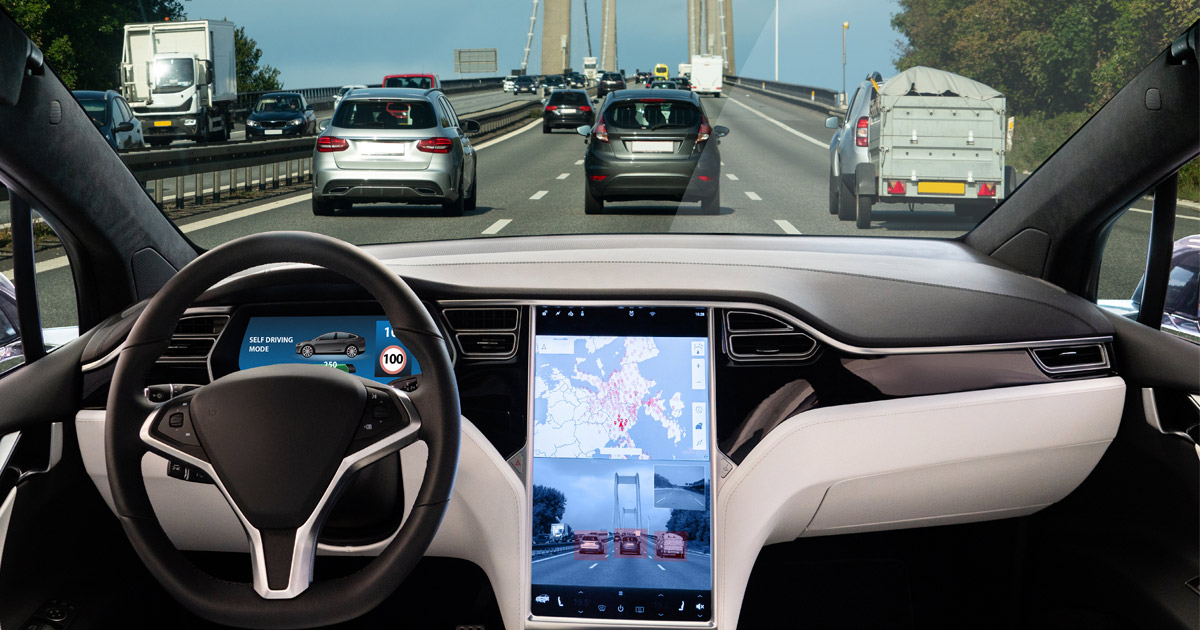NHTSA Approves Autonomous Vehicle That Does Not Meet Safety Standards
March 5, 2020
The National Highway Traffic Safety Administration (NHTSA) recently approved a request from Nuro, a Silicon Valley-based robotics company, to deploy a low-speed self-driving vehicle. This is the first time that the agency approved a vehicle that does not meet the federal safety standards for cars and trucks, which requires them to have side or rear-view mirrors, windshield wipers, steering wheels and brake pedals. The vehicle, called the R2, is a second-generation of an autonomous vehicle that is built to deliver groceries and other goods. According to a law professor at the University of South Carolina, the approval is a sign that the NHTSA may approve more self-driving vehicles in the future.
As a condition of the approval, Nuro will be required to submit real-time safety reports to the NHTSA and hold regular meetings to update the agency about any issues or concerns that may arise. In addition, Nuro will need to notify communities where the vehicles will be used. Acting Administrator with the NHTSA said that the agency is committed to the safe testing of these innovative new technologies. If there are any safety risks, he said, we will not hesitate to intervene.
Benefits of the R2 Vehicle
According to a statement released by Nuro, the front end of the R2 collapses inward in the event of a pedestrian accident. The vehicle is also temperature controlled so that meals, or any perishable items that it is delivering, will remain fresh. When the vehicle arrives at the customer’s address, they simply open the storage compartment using a code that is sent to them. The statement also mentioned the fact that their zero-occupant, neighborhood-friendly vehicles are a alternative to the heavy passenger vehicles that are used for errands.
President and co-founder of Nuro said that the NHTSA’s decision is a sign that exemptions can lead to advances in safety. By granting the exemption, regulators are saying that Nuro’s self-driving robots are as safe as traditional cars. In addition, the decision may eventually allow other companies that are testing self-driving technology to deliver goods and carry passengers. However, the current exemption is limited, since the Nuro robot does not carry people, nor does it exceed a speed of 25 miles per hour. According to the Transportation Secretary, because the R2 is a slow-moving, self-driving vehicle, features that were traditionally required, such as steering wheels, mirrors, and windshield, no longer make sense.
Baltimore Car Accident Lawyers at LeViness, Tolzman & Hamilton Seek Justice for Victims of Self-Driving Car Accidents
If you or someone you know was injured in a car accident involving a self-driving vehicle, including one like the Nuro’s R2, contact the Baltimore car accident lawyers at LeViness, Tolzman & Hamilton at your earliest convenience. We will conduct a thorough investigation into the accident and determine who is liable for your injuries. Our dedicated legal team will secure the maximum financial compensation you deserve and ensure that your rights are protected. To schedule a free consultation, call us today at 800-547-4LAW (4529) or contact us online.
Our offices are located in Baltimore, Columbia, Glen Burnie, and Prince George’s County, allowing us to represent victims in Maryland, including those in Anne Arundel County, Baltimore County, Carroll County, Harford County, Howard County, Montgomery County, Maryland’s Western Counties, Prince George’s County, Queen Anne’s County, Southern Maryland, and the Eastern Shore, as well as the communities of Catonsville, Essex, Halethorpe, Middle River, Rosedale, Gwynn Oak, Brooklandville, Dundalk, Pikesville, Nottingham, Windsor Mill, Lutherville, Timonium, Sparrows Point, Ridgewood, and Elkridge.

